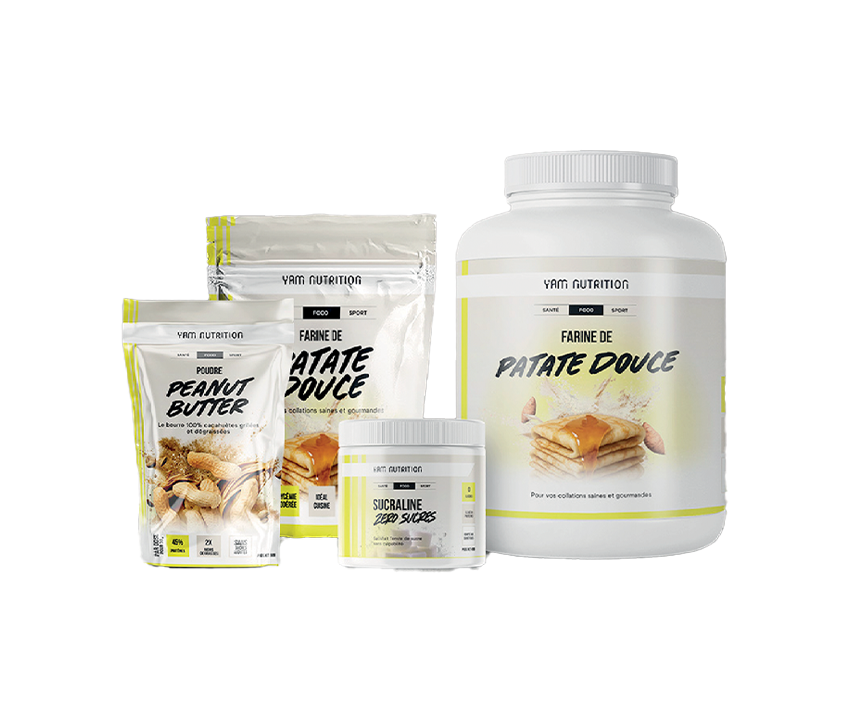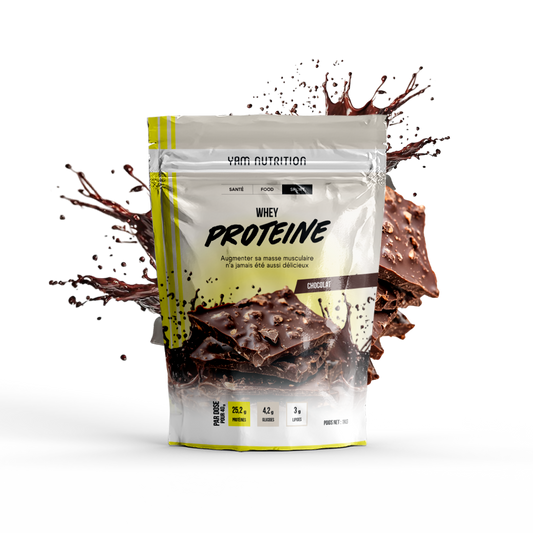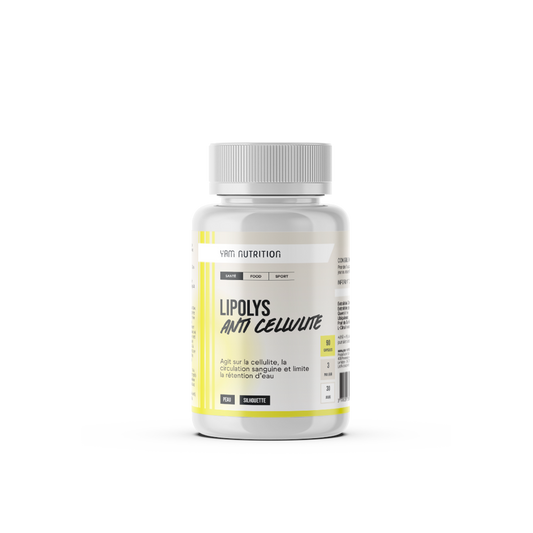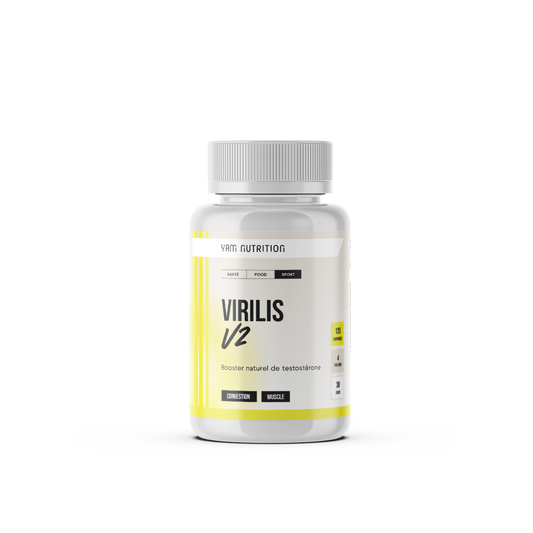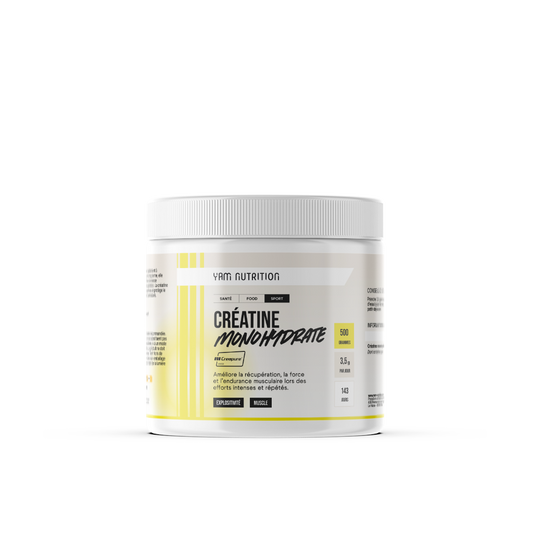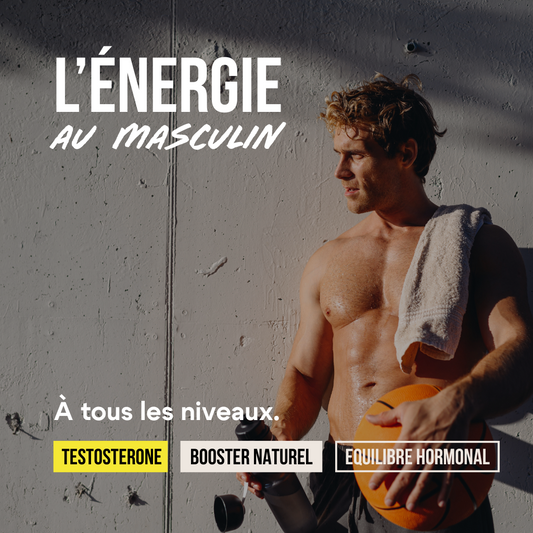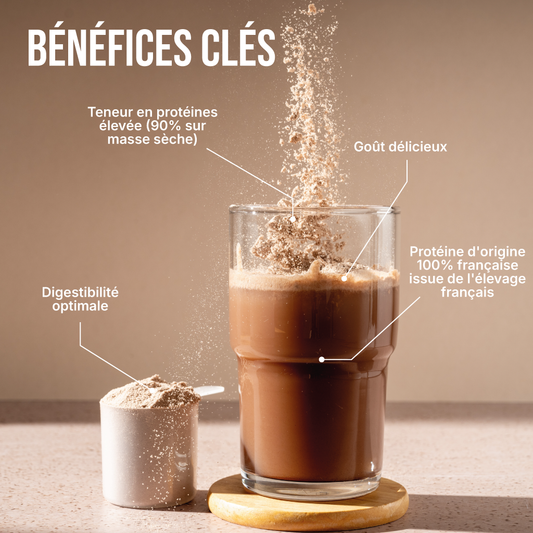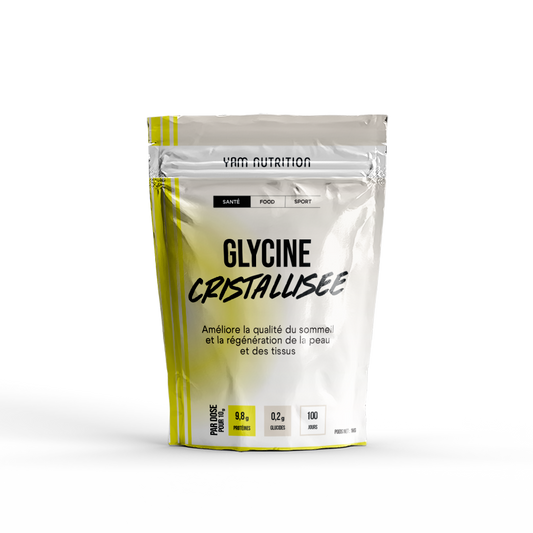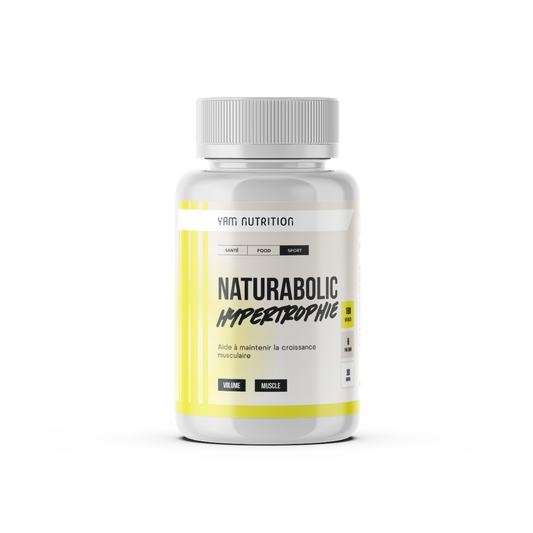The 3 additions to the power take-off
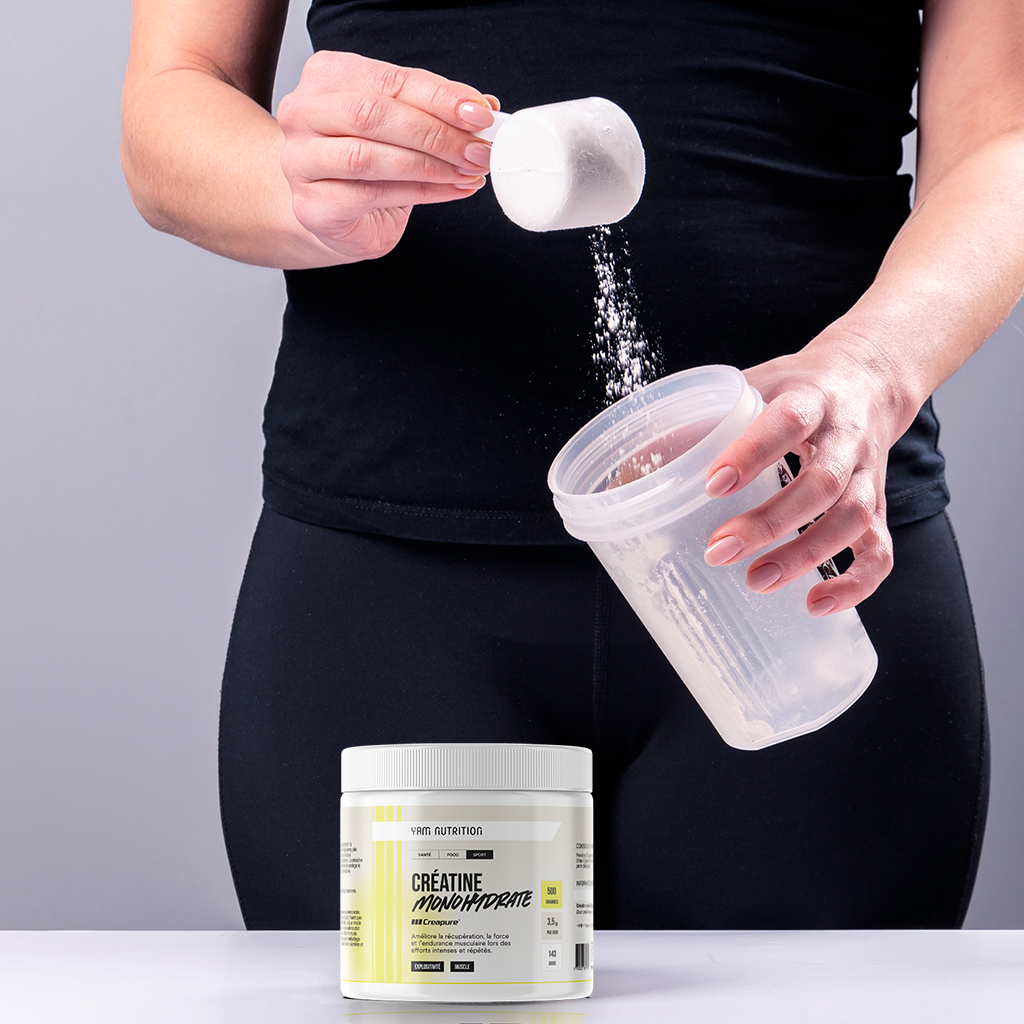
Sommaire
- Phosphocreatine regenerates ATP and muscle energy almost immediately
- Beta-alanine exhibits a similar buffering effect against relative muscle fiber acidosis
- Phosphocreatine also plays a role in intramuscular pH and strength gain.
- Caffeine, a nervous system stimulant known for its effectiveness in strength sports
- Caffeine and creatine do not systematically exclude each other in terms of strength gain.
There muscle strength gain is a complex phenomenon when it comes to explaining it physiologically. Many biological factors explain why and how we gain strength on the neuromuscular level. While it is quite difficult to act on the first point and develop the nerve-muscle relationship other than through resistance training, we can, however, easily act on the dietary and biological levels. However, the strength of an individual is a data that can be measured, even if bodybuilders estimate it rather in terms of loads moved and repetitions of exercises. Still, some food supplements will be more likely to help you gain strength than others. And if we had to choose three, we would definitely recommend caffeine, creatine, and beta-alanine. So why this choice?
Building muscle mass has never been so delicious The natural testosterone booster Improves strength, power and muscular endurance during intense and repeated efforts
Whey Protein
Sale price
From 37,90 €
Virilis V2
29,90 €
Sale price
29,90 €
Creatine Monohydrate Creapure®
Sale price
34,90 €
Phosphocreatine regenerates ATP and muscle energy almost immediately
As you know, the phosphocreatine and ATP pair is linked by an enzyme, creatine kinase. This enzyme allows a very rapid exchange between the two molecules. This exchange generates energy when a phosphate is released from ATP. An energy-generating process completely independent of glucose, this molecular exchange seems to be ideal for the sudden and spontaneous exchanges of muscle strength (maximum power output) but unfortunately, it does not last long enough. On the other hand, an additional creatine monohydrate allows us to prolong our intramuscular reserves of phosphocreatine and to prolong the exchange effect with ATP and the release of phosphates.
The strength gain is measurable and allows you, with the progressive accumulation of creatine at the muscle level, to gain a few repetitions per exercise. creatine monohydrate is one of the best dietary supplements for strength athletes. Its effectiveness and lack of side effects have been proven dozens of times by scientific experimentation. In addition, creatine does not interact with glucose metabolism, resulting in, conversely, a saving of glycogen stores. This mechanism allows athletes to maintain their energy reserves longer during exercise. Creatine can be taken regularly to increase muscle phosphocreatine levels over several weeks.
Beta-alanine exhibits a similar buffering effect against relative muscle fiber acidosis
THE beta-alanine is the non-protein version of alpha-alanine or more commonly L-Alanine that you are familiar with. While beta-alanine does not participate in protein synthesis, it nevertheless combines with L-Histidine to form carnosine. This is simply a peptide with high antioxidant potential, present in our tissues. Carnosine naturally opposes glycation, a phenomenon linked to cellular aging, but it also has other benefits that interest strength athletes. A beta-alanine supplement improves the synthesis of carnosine, a dipeptide that also has the advantage of exerting a buffering effect against H+ ions generated by high-intensity exercise. Relative acidosis would then be reduced by carnosine (and indirectly by beta-alanine) in order to maintain a stable cellular pH. This also explains why acidosis is relative and lactic acid is just a somewhat oversimplified and scientifically completely false view of the mind.
Phosphocreatine also plays a role in intramuscular pH and strength gain.
Still, carnosine is not the only molecule to exert this effect, creatine does too. In fact, creatine is responsible for this effect for about 30%. Indeed, the recycling of ATP by phosphocreatine requires the intake of H+ ions to complete, which explains this. From the perspective of strength sports, combining creatine and beta-alanine would therefore be a question of common sense. If the creatine Stimulates instant muscle power, beta-alanine, through its buffering effect, will also allow you to gain a few repetitions by pushing the limits of repetition of muscle contractions during an exercise. In other words, the stress placed on the muscle will increase more strongly, leading to hypertrophy and greater strength gain.
Caffeine, a nervous system stimulant known for its effectiveness in strength sports
In short, caffeine has been shown to be effective for endurance training but may be less so for strength training. However, caffeine does boost wakefulness, focus, and calorie burning. from fats, saving glycogen. At the same time, creatine has also proven this sparing effect on energy substrates, primarily glucose. Caffeine also stimulates the release of catecholamines such as adrenaline, resulting in a higher energy release. There is therefore every reason to believe that caffeine increases the effectiveness of strength exercises, even if this improvement is indirect.
Then, the ergogenic effects will be conditioned by the dosage, based on the principle that too high a dosage is likely to generate unpleasant (nervousness, anxiety, insomnia, palpitations) and harmful side effects. Let us add that repeated intake of caffeine in high doses is also not desirable for heart health. And if most pre-workout formulas add 200 mg of caffeine or more, it is pure caffeine, which calls for caution. By accumulating caffeine intakes throughout the day, you could reach high doses that are not recommended for your health. As a precaution, avoid exceeding 500 to 600 mg of caffeine per day, which is already a lot.
Caffeine and creatine do not systematically exclude each other in terms of strength gain.
The question of possible compatibility between caffeine and creatine is complex. Some studies highlight the fact that they should not be taken simultaneously, while most boosters Energy boosts produce results when both components are combined. These effects also depend on your daily consumption of coffee and caffeine sources. The higher it is, the more the effects will be reduced. At least, this is what emerges from the most recent clinical studies. In absolute terms, creatine, beta-alanine and caffeine are three natural components that you can rely on if it comes to improving your physical performance in terms of muscle mass and strength. Make it the basis of your supplementation if you do bodybuilding or practice a strength sport with intensity. You will get more results than you ever imagined...
YAM Nutrition
Eric MALLET
Spécialiste en Nutrition Sportive
